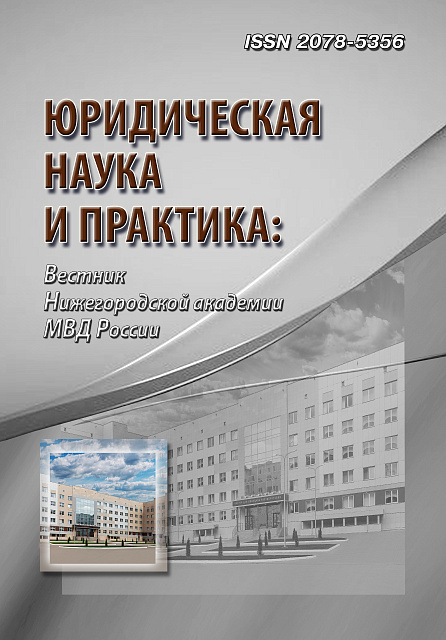The article analyzes the phenomenon of criticism of the formal theory of evaluating evidence in pre-revolutionary, Soviet and modern legal doctrine, manifested in the content of the works of individual researchers. The purpose of the scientific article is designated by the author as research and rehabilitation of the actual essence of the theory under consideration, contrary to established ideological patterns regarding the denial of its validity. To resolve the given goal, an analysis of various doctrinal sources and comparative approaches to assessing the evidence existing in the selected stages was carried out. The researcher states that, despite the primacy of the principle of free assessment of evidence enshrined in Article 17 of the Criminal Procedure Code of the Russian Federation in our legislation, it is possible to notice norms that relate us to the procedural technology of the formal theory of evidence assessment. The author has made an attempt to consider the procedural technology of evidentiary theory in the context of the rehabilitation of its procedural institutions. A general classification of the scientific argumentation of criticism addressed to individual provisions of the formal theory of evidence assessment is proposed. As conclusions, the author substantiates his position and proposes to neutrally consider alternative approaches to evaluating evidence that have emerged in view of the need to improve the criminal process in the era of revolutionary changes.
formal theory of evidence assessment, criminal process, criminal procedure legislation, criticism, evidentiary theory
1. Popper K. Logic of scientific research / gen. ed. by V. N. Sadovsky. Moscow: Republic Publ., 2005. 447 p. (In Russ.)
2. Koni A. F. In recent years. 2nd ed., rev. and exp. St. Petersburg: Printing house A. S. Suvorina, 1898. 745 p. (In Russ.)
3. Vladimirov L. E. The doctrine of criminal evidence. Parts: General and Special. 3rd ed., rev. and exp. St. Petersburg: “Jurisprudence” Publ., 1910. 440 p. (In Russ.)
4. Ternovsky N. A. Legal grounds for judging the strength of evidence and thoughts from the speeches of the Presiding Judge in criminal cases. A manual for legal practitioners and jurors. Tula: Printing house of V. N. Sokolova, 1901. 208 p. (In Russ.)
5. Foinitsky I. Ya. Course in criminal proceedings. Vol. II / ed. by A. V. Smirnova. St. Petersburg: Alfa Publ., 1996. 606 p. (In Russ.)
6. Vyshinsky A. Ya. Theory of judicial evidence in Soviet law. Moscow: Commissariat of Justice of the USSR Publ., 1941. 220 p. (In Russ.)
7. Koni A. F. Selected works and speeches / comp. I. V. Potapchuk. Tula: Autograph Publ., 2000. 640 p. (In Russ.)
8. Spasovich V. D. On the theory of forensic-criminal evidence in connection with the judicial system and legal proceedings. Moscow: LexEst Publ., 2001. 93 p. (In Russ.)
9. Sluchevsky V. K. Textbook of Russian criminal procedure. Judicial system-legal proceedings. 4th ed., rev. and add. St. Petersburg: Printing house M. M. Stasyulevich, 1913. 684 p. (In Russ.)
10. Sibileva Yu. E. Current problems of prejudice in criminal proceedings. Legal science and practice: Journal of the Nizhny Novgorod Academy of the Ministry of Internal Affairs of Russia, 2012, no. 20, pp. 197–200. (In Russ.)
11. Teplyakova O. A. Features and problems of use in proving the results of operational investigative activities. Journal of Moscow University named after S. Yu. Witte. Series 2. Legal sciences, 2020, no. 3, pp. 71–76. (In Russ.)
12. Kozlovsky P. V. Types of evidence in criminal proceedings: evolution, regulation, correlation Dissertation... candidate of legal sciences. Omsk, 2013. 224 p. (In Russ.)
13. Smirnov A. V. Formal means of proof in criminal law and process: monograph. Moscow: NORM: INFRA–M Publ., 2023. 240 p. (In Russ.)












